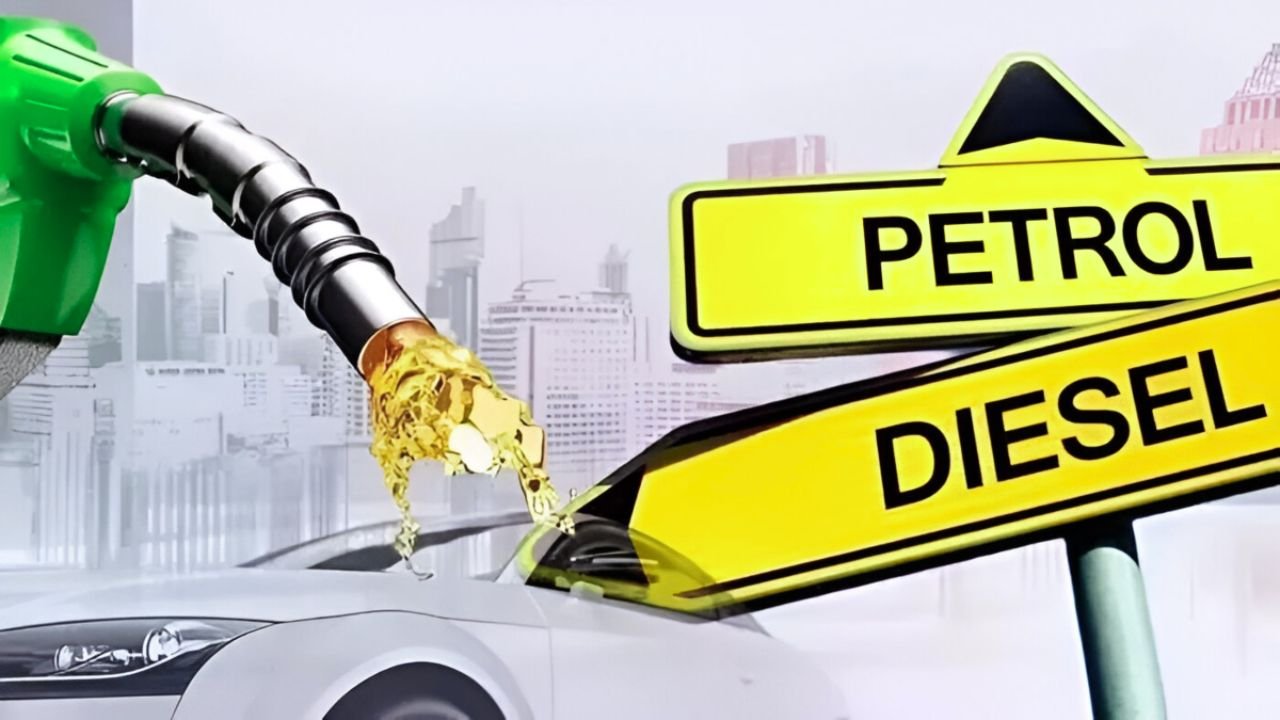As of 26th September 2025, petrol and diesel prices across India remain largely stable, with no significant changes reported in most major cities and states. This continuing trend of price stability has been observed since December 2024, offering some respite to Indian consumers given the global fluctuations in crude oil and currency exchange rates. Understanding fuel prices is crucial for millions of vehicle owners, transport businesses, and daily commuters, as it directly impacts travel costs, logistics expenses, and even inflation in goods and services.
This article presents a detailed update on petrol and diesel prices across Indian metros and state capitals, explains the factors influencing these rates, and provides insights into fuel taxation, regional differences, and alternate fuel options.
- Current Petrol and Diesel Price Snapshot Across Major Indian Cities
- Why Petrol and Diesel Prices Vary Across India?
- Stability in Prices: What Has Driven the Current Steady Rates?
- Diesel and Petrol Price Trends in September 2025: Summary
- Impact of Fuel Prices on Indian Economy and Consumers
- Growing Interest in Alternative Fuels and Energy Efficiency
- Tips for Consumers to Manage Fuel Costs
- Conclusion: Petrol and Diesel Prices Today Reflect Stability Amid Global Challenges
Current Petrol and Diesel Price Snapshot Across Major Indian Cities
Fuel prices in India are updated every day at 6 AM by state-owned oil companies such as Indian Oil Corporation (IOC), Bharat Petroleum Corporation Limited (BPCL), and Hindustan Petroleum (HPCL). However, since December 2024, prices have remained largely unchanged, reflecting a period of relative calm in global fuel markets.
Here are the official petrol and diesel prices (per litre) as of 26th September 2025 in major urban centers:
| City | Petrol Price (₹/L) | Diesel Price (₹/L) |
| New Delhi | ₹94.77 | ₹87.67 |
| Mumbai | ₹103.50 | ₹90.03 |
| Kolkata | ₹105.41 | ₹92.02 |
| Chennai | ₹100.80 | ₹92.39 |
| Bangalore | ₹102.55 | ₹90.99 |
| Hyderabad | ₹107.46 | ₹95.70 |
| Jaipur | ₹104.72 | ₹90.21 |
| Lucknow | ₹94.69 | ₹87.81 |
| Patna | ₹105.23 | ₹91.49 |
| Chandigarh | ₹94.30 | ₹82.45 |
| Thiruvananthapuram | ₹107.48 | ₹96.38 |
Note: Prices include state taxes and local levies, which causes variation across regions.
Read Also: Digital Car Health Reports: How 2025 Apps Track and Save Your Service Records
Why Petrol and Diesel Prices Vary Across India?
One of the most common questions among consumers is why fuel prices differ greatly between cities. The answer lies mainly in the taxation policies implemented by individual state governments.
- Central Excise Duty: Imposed by the central government uniformly across India.
- State VAT (Value Added Tax): Varies significantly from state to state and constitutes a major chunk of retail fuel price.
- Transportation Costs: Fuel transportation expenses also impact prices, with remote or less accessible regions incurring additional logistics costs.
- Dealer Commission: A minor, but existing factor influencing pump prices.
Due to these factors, metro cities with high VAT rates, like Mumbai and Kolkata, witness comparatively higher petrol and diesel prices, whereas cities like Delhi and Chandigarh typically offer lower fuel costs.
Stability in Prices: What Has Driven the Current Steady Rates?
The sustained stability in petrol and diesel prices since late 2024 can be attributed to several intertwined factors:
- Global Oil Market Trends: Crude oil prices, which form the base of local fuel prices, have mostly hovered in a moderate range without major spikes or dips in the past months.
- Rupee-Dollar Exchange Rate: The Indian rupee’s relative stability against the US dollar has limited price volatility caused by currency fluctuations.
- Government Policy: Strategic decisions to avoid frequent hikes or cuts in excise duties and VAT to protect inflation and consumer interest.
- Supply Assurance: Sufficient domestic refining capacity and diversified fuel imports have ensured uninterrupted fuel supplies, supporting consistent prices.
Diesel and Petrol Price Trends in September 2025: Summary
- The petrol price in Tamil Nadu fluctuated slightly between ₹101.68 and ₹101.88 per litre over September 2025.
- Chennai’s petrol price currently stands at ₹100.80 per litre.
- Diesel prices in cities like Mumbai, Bangalore, and Chennai have moved within narrow bands, ensuring consumers face predictable costs.
- Some small daily fluctuations occur based on global cues, but major shifts remain unlikely in the near term.
Impact of Fuel Prices on Indian Economy and Consumers
Petrol and diesel prices are often called the “backbone” of economic activity due to their extensive impact on transportation costs, goods movement, and inflation.
Personal Impact: For daily commuters and transport professionals, even small price fluctuations can significantly affect monthly budgets.
Industry Impact: Logistics, agriculture, and manufacturing sectors are dependent on diesel-powered vehicles; stable prices reduce input cost variability.
Government Revenue: Fuel taxation is a major revenue source for both the central and state governments, balancing fiscal budgets but influencing retail affordability.
Growing Interest in Alternative Fuels and Energy Efficiency
With India’s commitment to reducing carbon emissions and advancing sustainable transport, alternative fuels and efficient vehicle technologies are gaining traction.
- CNG (Compressed Natural Gas): Popular in metros like Mumbai, CNG prices are maintained at around ₹77 per kg, cheaper than petrol and diesel, with growing consumer adoption.
- Electric Vehicles (EVs): Increasing EV launches and government subsidies aim to reduce fossil fuel dependency.
- Hybrid Vehicles: Combine petrol/diesel with electric motors, optimizing fuel use.
- Biofuels and Green Hydrogen: Emerging as longer-term solutions in India’s energy transition roadmap.
Tips for Consumers to Manage Fuel Costs
- Monitor Daily Prices: Use official websites and apps for daily fuel price updates.
- Optimize Driving: Maintain vehicles well and avoid aggressive acceleration to improve mileage.
- Consider Alternate Fuel Vehicles: Explore CNG or EV options where available.
- Carpooling and Public Transport: Reduce individual vehicle use to save fuel and reduce emissions.
Read Also: Waterless Car Wash in 2025: A Sustainable Way to Protect Your Car’s Shine
Conclusion: Petrol and Diesel Prices Today Reflect Stability Amid Global Challenges
On 26th September 2025, Indian petrol and diesel prices largely remain stable, offering some relief amid volatile international energy markets. Though regional taxes cause price variations city-wise, the current prices provide a clear reference for consumers planning travel and budgeting fuel expenses.
Stable fuel prices support economic predictability and empower buyers with the information needed to make smarter transport choices, including gradually shifting toward greener alternatives like electric vehicles and CNG-powered cars.
Staying informed on fuel price trends will continue to be crucial for everyone in India—from daily commuters to commercial operators—as the country navigates its path towards energy security and sustainability.




